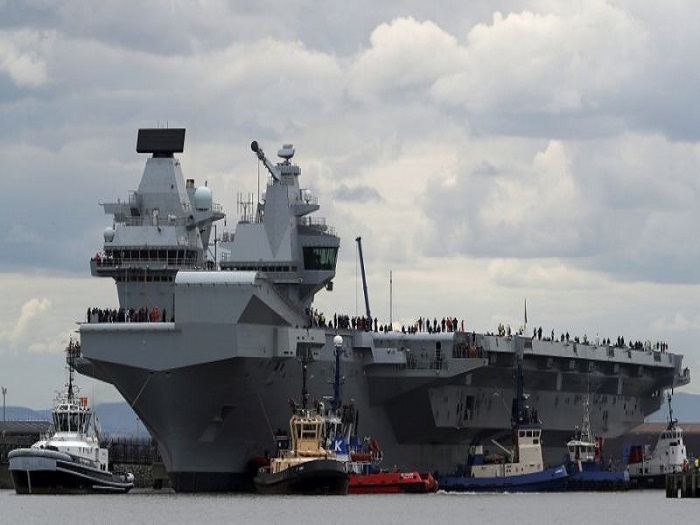Britain dispatches warship to South China Sea, claims it their ‘right’

Sydney, Feb 14: Great Britain has despatched its warship to the South China Sea making China raise its eyebrows. HMS Sutherland, the British warship will be arriving in Australia and then sail next month to cross the South China Sea, to assert the rights to freedom of navigation in the waters at the centre of international dispute.
The waters are disputed by China, Vietnam, Taiwan, the Philippines, Brunei and Malaysia. There are vast deposits of oil, gas in the ocean and trade routes worth 5 trillion US dollars annually. UK Secretary of Defen ce Gavin Williamson confirmed the dispatching of warship to South China Sea.
Taking advantage of the ambiguity of international law, Beijing claims a substantial slice of the sea. It includes the Spratly and the Paracels, islands disputed by Vietnam, Taiwan, the Philippines, Brunei and Malaysia (almost 85% of the territories). To ensure the control of the important sea routes that cross these waters, the Chinese government has started the construction of a series of artificial islands, with military installations and lighthouses for navigation.
Williamson said that the HMS Sutherland, an anti-submarine frigate, will arrive in Australia later this week. “It will sail through the South China Sea (on the way back) and make it clear that our navy has the right to do it,” says the Secretary at the end of a two-day visit to Sydney and Canberra. He does not clarify whether the frigate will sail within 12 nautical miles from disputed territory or an artificial island built by the Chinese, like US ships, but reports: “The United Kingdom firmly supports the US approach to navigation”.
In January, Beijing said it had sent a warship to expel an American destroyer that had ‘violated’ its sovereignty. According to Williamson, it is important that US allies such as Britain and Australia ‘affirm their values’ in the South China Sea. It is believed to hold vast deposits of oil and gas and is traversed by trade routes worth 5 trillion US dollars annually.
Following the publication of new satellite images that show the deployment of radar and other equipment, in December China defended and defined its construction on the disputed islands, also claimed by its Southeast Asian neighbours, as “normal”. Williamson reiterated the need to watch over "any form of malicious intent" in Beijing, which seeks to become a global superpower. “Australia and Britain see China as a country of great opportunities, but we should not be blind to Chinese ambitions and we must defend our national security interests,” he said.